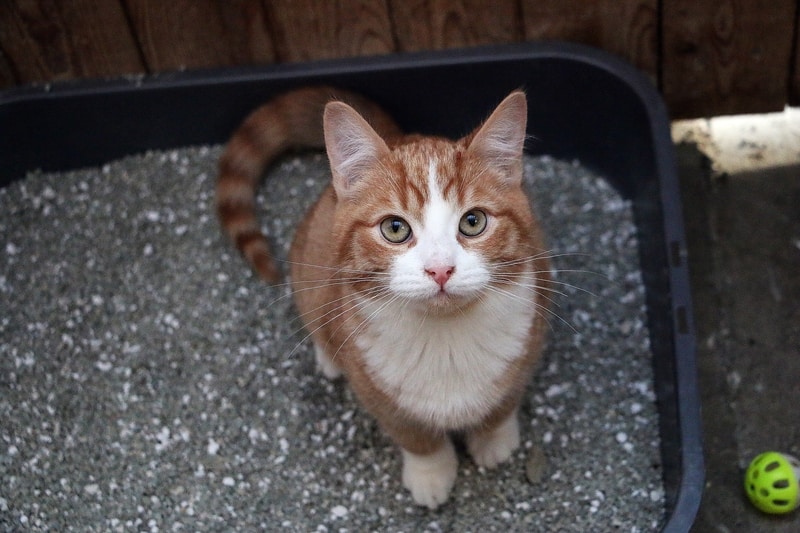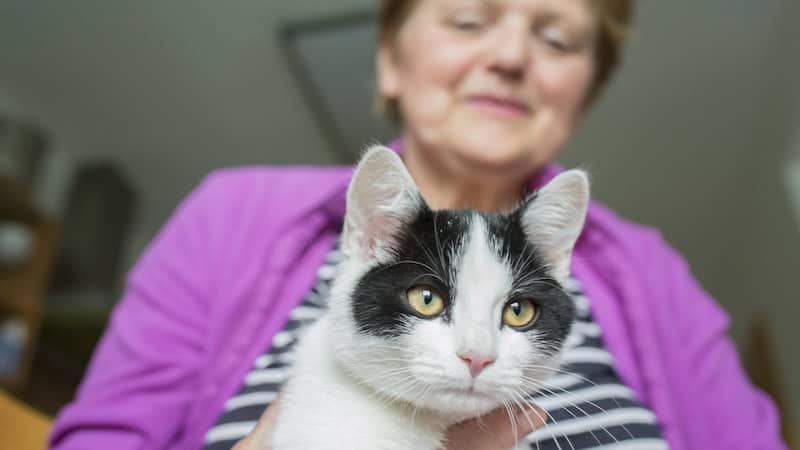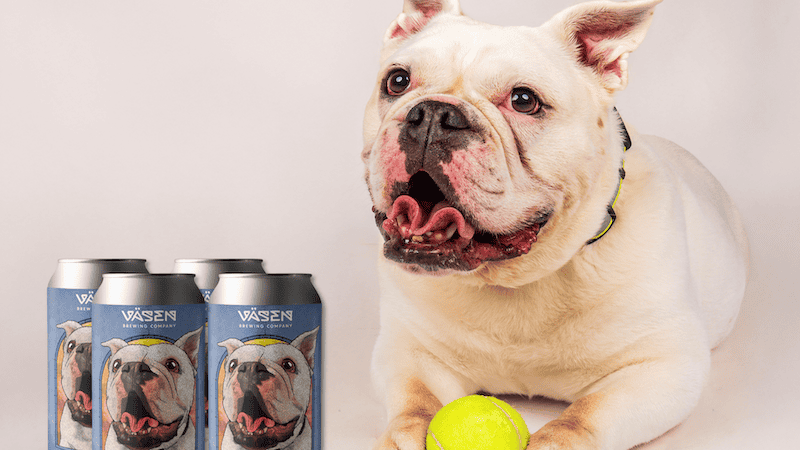Anxious Dog Has Peeing Problems after Toddler Visits
Plus an odd kitten litter box habit

In this edition of ‘My Pet World,’ animal expert Cathy M. Rosenthal offers pet advice on why an anxious dog has peeing problems, going from a perfectly housebroken dog to one who urinated in his bed – and his owner’s – and on a kitten who insists on spraying the sides of her litter box.
Dear Cathy: I have a 6-year-old Cavalier King Charles spaniel named Remy. He’s housebroken and never used training pads. When my grandkids come over, Remy is fine with the girls, but Remy seems anxious when my boyfriend’s two-year-old grandson is around. The other day, he was running around the house with Remy’s favorite toy animal. The next day, Remy urinated in his bed and then a few days later, he urinated in mine. Do you think it could be because the grandson had his toy?
– Kathy, Seaford Island, New York
Dear Kathy: If your dog doesn’t have a urinary tract infection, then he is likely urinating in the beds because he is feeling stress or anxiety, which definitely can be related to your boyfriend’s grandson running through the house and/or messing with his toys.
There is actually a simple fix for this. When Remy is around, teach the child to be respectful of Remy by giving him space and leaving his things alone. He should not be able to run off with Remy’s toys or mess with his bed or touch his food or water dishes unless he is helping to feed or provide water for the dog. This is not intended to be a punishment for the child, but a learning experience on how to be respectful around animals.
Also, please teach the grandson how to be calm when Remy is around, but don’t expect the grandson to be calm all day. He is only 2, after all, which means Remy may need to be put in a room for a bit so the grandson can engage in normal play.
As for the bed wetting, use an enzymatic cleaner to remove all biological traces of the urine so Remy is less likely to pee on the bed again, and put plastic covers on the mattress to protect it. You also can buy him a pheromone collar to wear to soothe him. If Remy no longer feels stressed and can’t smell where he peed on the bed, he is less likely to do this again.
Oh no, my dog sitter is lying to me!
 Dear Cathy: We adopted a beautiful 3-month-old calico kitten with a strange litter box habit. She sprays the sides of the litter box as if she is marking her territory. The only difference is she doesn’t stamp her feet and cover what is in the box. She has always used the box, never sprayed the house, and has been perfect except for this one thing. She was spayed at 6 months old, and we were hoping that would stop the behavior. She is now 8 months old and still spraying about half the time. Our vet said she had never heard of such a behavior, and she too hoped the spaying would stop it. It’s a nuisance because of the extra cleaning needed to keep the litter box clean and odorless. Do you have any ideas for us?
Dear Cathy: We adopted a beautiful 3-month-old calico kitten with a strange litter box habit. She sprays the sides of the litter box as if she is marking her territory. The only difference is she doesn’t stamp her feet and cover what is in the box. She has always used the box, never sprayed the house, and has been perfect except for this one thing. She was spayed at 6 months old, and we were hoping that would stop the behavior. She is now 8 months old and still spraying about half the time. Our vet said she had never heard of such a behavior, and she too hoped the spaying would stop it. It’s a nuisance because of the extra cleaning needed to keep the litter box clean and odorless. Do you have any ideas for us?
– Myra, Abingdon, Virginia
Dear Myra: Many cats spray inside their litter boxes, and while spaying and neutering can help this behavior, it’s not a guaranteed fix. Cats sometimes do this when they have urinary infections or other health problems, when something is bothering them – or just because they do.
While I understand it’s a hassle to clean the inside of the litterbox more frequently, the good news is, she is spraying inside the box and not anywhere else in your house. Any attempt to discourage this behavior could actually result in her developing litter box problems since you would be discouraging her in the very place she actually needs to go to relieve herself.
You can, however, reduce the odor by using a litter box with charcoal filters and changing those filters out every three months (or as needed). Of course, continue wiping down the sides of the litter box daily. Use an enzymatic cleaner to remove the urine smell completely, which may discourage her from spraying the box over and over again. She is still a kitten though, so she may stop this behavior eventually, especially if she is doing it less and less each day already.
If I misunderstood your question and the cat is actually spraying the outside of the litter box, she may not like where the litter box is currently located. In which case, buy an additional litter box and put it in a second location to see if that helps. Finally, even though we don’t know the reason for her doing this, she may also benefit from wearing a feline pheromone collar for a few months.
Cathy M. Rosenthal is a longtime animal advocate, author, columnist, and pet expert who has more than 25 years in the animal welfare field. Send your pet questions, stories, and tips to cathy@petpundit.com. Please include your name, city, and state. You can follow her @cathymrosenthal.
© Tribune Content Agency, LLC.
Products linked from Boomer to Amazon have been vetted and recommended. As an Amazon Associate, Boomer Magazine earns from qualifying purchases of linked products.


